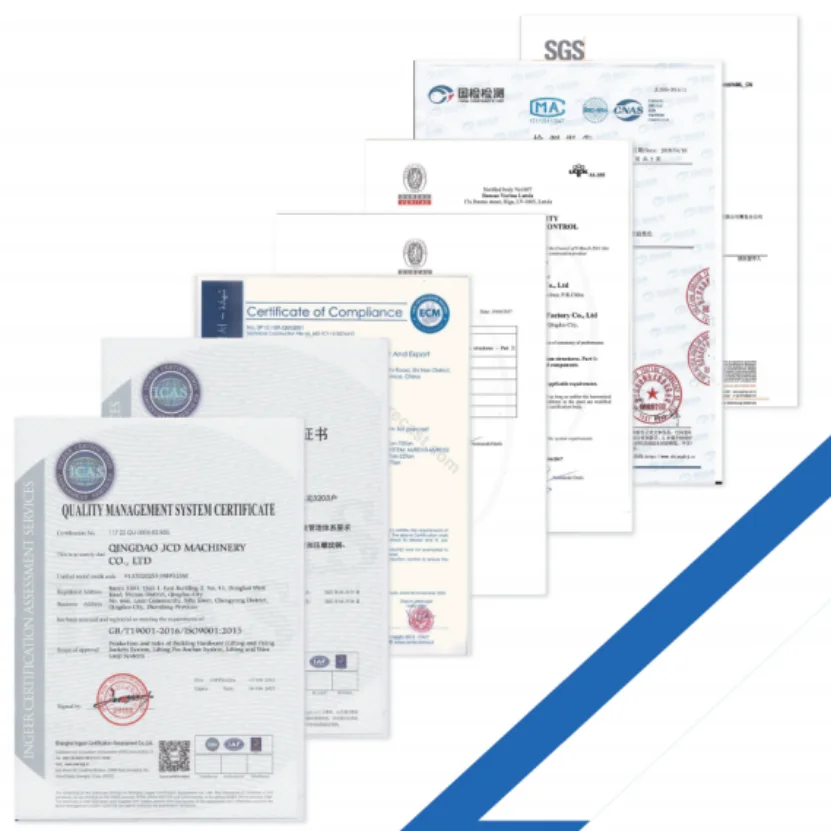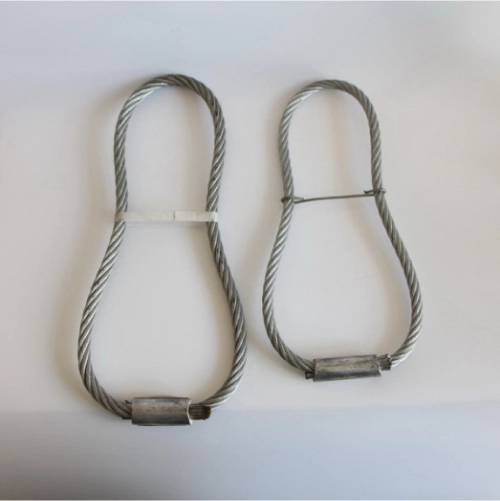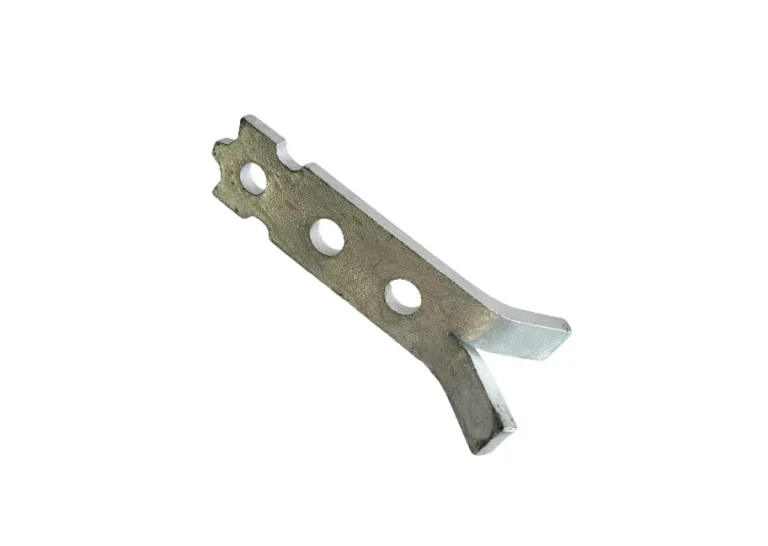
The Role of Flat Plate Anchors in Enhancing Soil Stability
Flat Plate Anchors are vital tools in today’s construction work. They help make soil strong and keep structures safe. These anchors work well in deep digging projects. Keeping the ground steady is key to safe and successful building.
Flat Plate Anchors hold back soil pressure. This stops walls from moving or falling. They are simple but strong, making them a top choice for engineers. Their job is to keep everything stable, especially in tough digging jobs.
Applications of Flat Plate Anchors in Deep Excavation Projects
Flat Plate Anchors are used in many big digging tasks. For example, they help in building basements, underground parking lots, and subway stations. They fight against the push of the earth on walls or support systems. Engineers place these anchors deep in solid soil. This is far from the area being dug, so the walls stay firm and safe.
These anchors also help in other projects, like tunnels and bridge supports. These jobs need deep digging and face strong soil pressure. Flat Plate Anchors work for both short-term and long-term support. Their flexibility makes them perfect for different setups in construction.
Mechanism of Soil Resistance Improvement Using Flat Plate Anchors
Flat Plate Anchors work by moving weight from the structure to the soil around it. Once set up, they create strong resistance. They use friction and the soil’s ability to hold weight. The anchor plate sits in firm soil layers, which helps it stay steady.
When the anchor rod is pulled tight, the flat plate grips the soil. This builds a strong area that keeps the wall stable. It spreads out the forces evenly. This stops weak spots that could cause the structure to break.
Advantages Over Traditional Anchor Systems
Flat Plate Anchors have many benefits compared to older systems like tiebacks or helical anchors. Here are some reasons they are better:
- They are easier to install with fewer parts.
- They work well in sticky soils because they have a big surface.
- They resist rust when made from forged or coated materials.
- They save money on medium and large projects.
Also, Flat Plate Anchors are easy to check and maintain. This makes them a favorite for engineers who want systems that last a long time.
Design Considerations for Flat Plate Anchors in Excavation Engineering
Good planning is important for Flat Plate Anchors to work well. Engineers must think about many things when designing and installing them. Careful choices make sure the anchors do their job right.
Key Parameters Influencing Anchor Performance
Several things affect how well Flat Plate Anchors work:
- The size and shape of the plate.
- The angle at which it is placed against the wall.
- How deep it is buried in the soil.
- The type of soil and how sticky it is.
- The weight the anchor needs to hold.
Using custom forging parts, a forging manufacturer can adjust these factors. This ensures the anchors fit the project’s needs and work well with the soil.
Load Distribution and Bearing Capacity in Different Soil Types
Different soils hold weight in different ways. For example:
- In sandy soils, the anchor relies on friction to hold steady.
- In clay soils, the stickiness of the soil helps the most.
- In mixed soils, both friction and the soil’s strength work together.
Precision forging makes sure the anchor’s size is exact. This is important for figuring out how the weight spreads in different soils. A good forging manufacturer ensures the anchors are strong and reliable.
Installation Techniques and Their Impact on Soil Resistance
How the anchors are put in the ground matters a lot. Methods like driving, drilling, or pre-drilling can change the soil. Bad methods might loosen the dirt or make empty spaces, which weaken the anchor.
Using forged parts from a trusted forging manufacturer makes anchors tough. They can handle the force of being driven into the ground without breaking. Also, choosing high-quality materials from a metal casting manufacturer helps anchors resist rust in harsh environments.
Benefits of Using Flat Plate Anchors in Construction Projects
Cost-Effectiveness and Long-Term Durability
Forged steel Flat Plate Anchors are strong but light. They handle repeated stress well without wearing out. When made by trusted companies like Qingdao Baoqi Intelligent Co., Ltd., a forging manufacturer, they meet high-quality standards. The ISO-certified production ensures reliable products.
These anchors need less upkeep than complex systems with moving parts. This saves money over time, making them a cost-effective choice.
Compatibility with Various Ground Conditions
Flat Plate Anchors work in many types of soil, like soft clay or hard sand. They don’t need big design changes for different grounds. This makes them great for projects in different places without extra costs.
Industry Applications Beyond Deep Excavations
Flat Plate Anchors are not just for deep digging. They are useful in many other areas of construction and engineering.
Use of Flat Plate Anchors in Tunneling and Retaining Walls
In tunnels, Flat Plate Anchors stabilize entrances or covered sections. They resist pressure from the soil or nearby structures. They also strengthen retaining walls along roads or slopes, especially where rain or earthquakes could cause sliding.
Custom forging parts can be shaped for tight spaces or curved designs, common in tunnels or city projects. A forging manufacturer can create parts that fit perfectly.
Infrastructure Projects Benefiting from Improved Soil Resistance
Flat Plate Anchors help prevent sinking in big projects. They are used in:
- Bridge supports
- Railway trenches
- Dams and levees
- Factory foundations
Construction castings, like precast parts, are often used in bridges, tunnels, and roads. They speed up building and make projects more efficient.
Factors Influencing the Performance of Flat Plate Anchors
Many things affect how well Flat Plate Anchors work. Understanding these helps choose the right anchors for the job.
Environmental Conditions and Soil Characteristics
Things like water in the ground, freezing, or chemicals can weaken anchors over time. Forged steel from a forging manufacturer lasts longer because of its strong structure. Soil tests before installation show things like stickiness or water content. These help decide how deep to place the anchors or what rust protection to use.
Anchor Size, Shape, and Installation Depth Considerations
Bigger plates give more grip but need deeper placement, especially in loose soil. Custom forging parts from a forging manufacturer let engineers balance size and cost. This ensures the anchors work well without breaking the budget.
Forging Manufacturer’s Contribution to High-Quality Anchor Components
The strength of Flat Plate Anchors depends on how well they are made. A good forging manufacturer ensures anchors can handle heavy loads.
Qingdao Baoqi Intelligent Co., Ltd. as a Reliable Forging Manufacturer
Qingdao Baoqi Intelligent Co., Ltd. offers custom solutions for Flat Plate Anchors. Their services include Construction castings, forging, and stamping parts manufacturer processes. They make precast accessories, cast-in loops, and connection boxes, which are key for anchoring systems.
Custom Forging Capabilities for Specialized Anchor Requirements
With over 10 years of experience, BaoQi supplies forged parts to countries like Australia, Germany, and the USA. They use metal casting manufacturer methods and laser cutting for precise parts. This is great for tricky sites where standard parts don’t fit.
BaoQi supports projects from start to finish. Their four plants in Qingdao and Wei fang offer full services, including prototyping and large-scale production. They provide Construction castings, forging, stamping, laser cutting, and custom parts.
Quality Assurance Through ISO-9001 Certified Production Facilities
BaoQi’s plants follow ISO-9001 standards. This means every batch is high quality, no matter the size. This is critical for safety in deep digging projects where failure is not an option.
Frequently Asked Questions (FAQ)
What makes Flat Plate Anchors better than helical tiebacks?
Flat Plate Anchors have a bigger surface for better grip, especially in sticky soils. They are simpler to install and need less special equipment.
Can Flat Plate Anchors be reused after removal?
Usually, no. Once used, they bend slightly in the soil, making reuse risky. However, special removable designs with custom forging parts can sometimes be reused.
How do I determine proper embedment depth?
Embedment depth depends on the weight the anchor must hold and soil traits like strength or stickiness. Soil tests by engineers help decide the right depth.
Are forged anchor plates stronger than cast ones?
Yes, forged plates are stronger due to better grain structure. They resist wear better than cast plates, which may have weak spots. Forged steel Flat Plate Anchors handle repeated stress well.
Where can I source high-quality Flat Plate Anchors?
Choose suppliers like BaoQi, a forging manufacturer with stamping parts manufacturer services. They specialize in Construction castings and custom parts for building projects.
To learn more about how our ISO-certified facilities can support your next construction project—from Construction castings to custom-forged anchoring solutions—contact us today. Qingdao Baoqi Intelligent Co.,Ltd. has over 10 years of experience producing and exporting forging, casting, and stamping parts.









